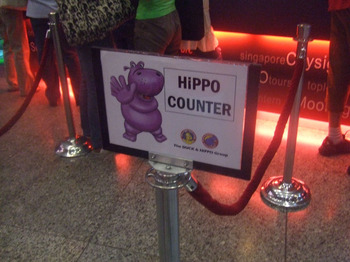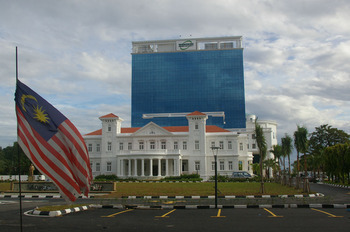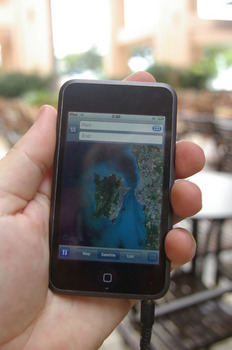We are developing the social individualist meta-context for the future. From the very serious to the extremely frivolous... lets see what is on the mind of the Samizdata people.
Samizdata, derived from Samizdat /n. - a system of clandestine publication of banned literature in the USSR [Russ.,= self-publishing house]
|
A change in employment has meant that I suddenly have three weeks leisure on my hands, and as a consequence I have decided to address my terrible inadequacies as a traveller by making my first trip to South America. I shall thus be arriving in Buenos Aires late tomorrow evening, and the plan is to be in Argentina for three weeks. This has come suddenly. My plans involve the city of Buenos Aires, some time in the Mendoza wine country, but otherwise I shall be more or less making it up as I go along.
If any people have tips with respect to things I must not miss seeing, please put them in the comments. Alternately, if any members of our immense Argentine readership want to go out for a drink or dinner, please also respond.
“The Olympic Games are not the place for demonstrations.” Aren’t they? Actually, the Olympics seem an ideal place for demonstrations.
– Anne Applebaum, pointing out the obvious fact that the Olympic Games are highly political by their very nature. I am feeling a greater and greater sense that the Beijing Olympics are going to be highly memorable, quite possibly in the sense that a trainwreck is highly memorable. And I am not sure this is bad.
The following sign is presently visible on the sides of London bus shelters.
So, the economically productive parts of the London economy are being asked to subsidise bus travel for the less economically productive parts, are they? Par for the course, I guess.
Hang, on, what is this at the bottom?
Huh?
Ah…. okay. It seems that due to the deep and touching international friendship in the name of Socialism between Hugo Chavez and Ken Livingstone, Venezuela is providing oil at below market prices so that the welfare recipients of London can have half price bus travel. I do not know how your average man on the street in Caracas feels about this, but personally I am wondering just how fast it is possible to see the back of either of these amoral and wretched men. At least we in London have a mayoral election in May so that we can hopefully get rid of Mr Livingstone. The people of Venezuela are probably less lucky.
Or perhaps we are not so lucky. I guess we will find out. Assuming we do, it may be that the only virtue of democracy is that it gives us the opportunity to throw politicians out when a few years in power has made them too odious for anyone to stand any more. In this case I suspect I shall be sufficiently moved to actually cast a vote.
On November 19, 1941, the light cruiser HMAS Sydney of the Royal Australian Navy was returning to the port of Fremantle after escorting the troopship Zealandia to Sunda Strait between Java and Sumatra. The Sydney spotted what appeared to be a merchant vessel about 150km off Shark Bay on the coast of Western Australia. As it happened, the vessel in question was the quite heavily armed German merchant raider HSK Kormoran, painted black and disguised as the Dutch vessel Straat Malakka. The Kormoran had been responsible for sinking ten merchant ships in the previous year in the South Atlantic and Indian oceans, but it was not initially identified by the Sydney.
Whilst attempting to identify the unknown vessel, which was sending out deliberately unclear and ambiguous flag signals, the Sydney chased and overhauled the Kormoran, approaching to a distance of approximately 1000 metres from the Kormoran. At this point, the Kormoran opened fire. Sydney was hit approximately 50 times, causing severe casualties on her bridge and open decks, damage to her gun turrets, and apparently damage to both sides of her superstructure that caused complete destruction of her lifeboats and rafts, and setting the ship on fire. Sydney retaliated, and caused severe damage to the funnel and engine room of the Kormoran. Sydney then left the scene, heading south. Kormoran was so badly damaged that the ship had to be abandoned. Sydney was last seen listing and on fire, and flames were seen and explosions heard from the crew who had abandoned the Kormoran as the evening progressed.
The bulk of the crew of the Kormoran (over 300 people) were either rescued by Australian ships, or managed to sail their lifeboats to the Australian mainland. They were imprisoned in Prisoner of War camps, where they remained until 1947. The crew of the Sydney were not so lucky, however. Neither the ship or anyone on it were ever seen again. Apparently the destruction of the lifeboats and rafts meant that when the ship sank it went down with its entire crew of 645 people.
For people in Australia who lived through the Second World War, the loss of the Sydney is a moment that is always remembered and recalled. Losing one of the largest vessels in the Australian Navy did terrible things to Australian morale, and the mystery of where the ship went down and exactly how it was lost is something that has led to controversy, disagreement, and even the odd conspiracy theory involving the Japanese. The Sydney went down two weeks before Pearl Harbor. The fact that the only knowledge of the battle and how the Sydney was lost came from the enemy has heightened this sense.
The next six months were very bleak ones for Australia in the war. Eight ships (including the Zealandia) were sunk and there was much loss of life and property when a massive Japanese air raid attacked the Australian city of Darwin on 19 February 1942. More bombs were dropped in this raid than had been dropped on Pearl Harbor two months ealier. This was the first of over 100 air raids on Northern Australia in 1942 and 1943. The 8th Division, which the Zealandia had transported to various parts of tropical Asia as the Japanese threat loomed (but which had been trained for desert warfare against Nazi Germany) suffered a series of terrible defeats, and was essentially destroyed as a fighting unit by the middle of 1942. The Japanese Navy made serious incursions into the water off the east coast of Australia, culminating in the midget submarine raid on Sydney Harbour and shelling of Sydney and Newcastle by Japanese submarines in May and June of 1942. At the time if was feared by many that a Japanese invasion of Australia was imminent.
Of course, this did not happen, but it was a terrible moment in Australia’s history, and one that largely took Australia by surprise. In my mind that six month period from the sinking of the Sydney is when Australia ceased to be British. That Australia was in a different part of the world, and had different interests and different priorities and potentially different allies from Britain was something that could no longer be denied by anyone. While for most practical purposes Australia had been an independent country for decades by this time, a law was passed (The Statute of Westminster Adoption Act of 1942) that made this unambiguously clear. Those symbols of nationhood that Australia had not adopted for itself prior to this time were adopted soon after the war. Australia’s foreign policy ever since this moment, including Australia’s very close alliance with the United States and Australia’s decision to keep relatively small but extremely modern and well trained armed forces are really a consequence of what happened in this six month period of the Second World War. The loss of the Sydney was in a way an atypical part of this terrible six months. It was sunk by a German vessel, and the war was ultimately with Japan. However, the loss of the Sydney was a landmark event in Australian minds.
Which is why the mystery of what had happened to Sydney has been a long-standing and long-running one in the Australian psyche. It was one of two mysteries from the Second World War, the other being what happened to the third midget submarine that entered Sydney Harbour on May 31, 1942. That submarine was eventually found just north of Sydney, but not until November 2006.
And people kept looking for the Sydney, despite the fact that it was lost a long way to sea, and at that the sea off Australia’s very inhospitable north-western coast. $3.9 million of government money was directed towards a search for the wreck of the vessel that commenced at the beginning of this month, headed by American shipwreck hunter David Mearns. On the 16th of March it was announced that the wreck of the Kormoran had been found on 12 March. On the 17th March, it was announced that Sydney had been found at 26°05”²49.4”³S 111°04”²27.5”³E, and the wreck was still largely intact. Australian Prime Minister Kevin Rudd announced that both wrecks would officially be designated as war graves, and thus protected under Australian law. Presumably it will be possible to examine the wreck of the Sydney further and learn a little more about how she was damaged and sank. Still, though, the question of what happened in her final few hours will always remain supposition.
All the London newspapers today are full of a new but familiar “report on strange people to the wonderful and efficient experts in the police” anti-terrorism advertisement.
I am a foreigner. I have five mobile phones. Readers are invited to speculate as to why this is (although it could just be that “I need communication”, or perhaps that I find that sitting in a bar sending text messages to myself relieves the monotony of life). I swap their SIMs around all the time, often in public places and for sinister reasons like “The battery ran out on my main phone and I still want to receive calls on that number”..
Also, I like to wander around London and other cities photographing things like bridges, container ports and other critical infrastructure.
When am I going to be reported? Will I be sent to Guantanamo? Will Brian be there too? Why the fuck are these people wasting my taxes like this?
Also, where did the “thousands” come from? If we are talking the whole world, it would be “billions”. If we are talking the UK it would be “tens of millions”. Statistics actually suggest that there are around seventy million active mobile phones in the UK. Given that that is ten million more than there are people in the national population, and given that there must be at least ten million people who realistically are too young to have one, there are at least twenty million suspicious phones in the UK.
Who knew the terrorism problem was this big?
Suppose that Her Majesty’s Revenue and Customs have lost your personal financial information (along with that of 25 million other people) on a set of lost CDs, or perhaps they have simply lost all the details of your VAT registration.
In any event, the criminals have your National Insurance number. You are worried about fraud. It is good that HMRC have provided information to help you deal with it.
(Via the Register).
My life has been fairly busy for the last couple of months, and as a consequence, I have not managed to report on this blog the results of my “Anyone in Singapore want to meet up?” request, from December. This is a shame, because thanks have been order to a Samizdata reader and commenter whose response ensured that things turned out very well. However, better late than never.
What happened was that long time Samizdata commenter The Wobbly Guy offered to take me out for crab at Mellben seafood restaurant in Ang Mo Kio, which, as he put it, “is noted for its crab”. Australians such as myself are also fond of crab, but we tend to eat it more simply than the Singaporeans. Australians tend to eat crab boiled with relatively few embelishments. Singaporeans tend to eat it with more spices and chilis. However, when we talk about past visits to one another’s countries, people of both nationalities will tend to say things like “Mmmmmm. Great seafood”.
As it happened though, on my last day in Singapore I made something close to a terrible mistake. Wandering along Geylang road at about 2pm I discovered that I was hungry, and I therefore walked into one of many street restaurants in that area that offer an “unlimited Steamboat buffet” for about $S15. (About £5 or US$10). The restaurant was full of local people having long lunches, and in such a restaurant (in which you cook meat, seafood, vegetables, and goodness knows what else in a bowl of boiling soup in the middle of your table) it is possible to have a very long lunch.
When I walked through the door, the very kind lady running the restaurant thoughtfully enquired as to just how spicy I like my soup, got me a large bottle of Tiger beer, gave me one of those “Go for it” expressions and gestured towards the buffet. I got myself a modest selection of seafood and meats, and sat down to cook and eat it. It was good. Repeat until fade.
On about my third trip to the buffet, the kind lady saw me tentatively placing a modest portion of crab on my plate, and decided it was time to put me to rights. She gave me one of those “You poor, pathetic westerner. You truly have no idea, do you?” looks, and proceeded to pile my plate high with crab for me. Chastened by this, I took the seafood back to my table and my soup, and got myself another bottle of beer. I was slowly getting there, but the guys at the next table clearly were not having any such problems.
Thus, after intending to have a quick lunch, I stumbled back out onto the street two and a half hours later after engorging vast amounts of food.
So thus, when The Wobbly Guy very kindly picked me up from my hotel after I had rushed off to the centre of town topick up the custom suits I had ordered a couple of days earlier, I was perhaps not ideally prepared. It wasn’t quite as bad as attempting a six star day in Donostia, but it was perhaps heading that way.
Somewhat to my relief I had a further opportunity to digest my lunch before moving onto dinner, as the combination of a public holiday and a very popular restaurant meant that we had to queue. Several restaurants nearby lacked such queues – presumably they cater to the “people who are willing to eat less good food but are in a hurry” crowd. In addition, this gave us a chance both to chat and to watch another of these kind but formidable Singaporean restaurant women removing the alive and active crabs from the large styrofoam boxes marked “Singapore Airlines” in which the crabs had apparently just been flown in from Sri Lanka.
As she did this, she watched by some cute as a button children, some of who were probably determined to grow up to be kind but formidable Singaporean restaurant women themselves.
As we waited, The Wobbly Guy and I were able to compare our national culinary cultures. I am still not sure if either the “sand crabs” and “mud crabs” we get in Australia are the same species to those eaten in Singapore. Clearly more research is in order. → Continue reading: A belated but sincere thank you
There is a very interesting story in parts of the media today. Large parts of the Middle East and (in particular) India are suffering a major internet outage. It seems that a storm in Alexandria in Egypt has led to ships going off course and their anchors damaging the SEA-ME-WE 4 and FLAG fiber optic cables connecting India with Europe and Asia, and capacity to India has thus been reduced. There are some older, lower capacity cables still in use, and there are cables to the US also, but these were the main connections to India. It seems at this point unclear whether the two cables were both ruptures near Alexandria, or whether one of the outages was off Marseilles. But in any event, two of the world’s key cables were damaged within a few hours. This seems quite remarkable. The TWO main cables between Europe and India were both damaged within a matter of hours. It seems an extraordinary coincidence. It may or may not be an extraordinary coincidence, and we will find out.
However, as a science fiction fan and a reader of Wired Magazine, the mention of these two cables brings back a thought of one of the finest articles ever published in the magazine. In 1996, science fiction author Neal Stephenson (of Snow Crash fame) wrote a long and wonderful essay for Wired Magazine entitled “Mother Earth, Motherboard”. This article was written as the 1990s telecoms boom was gearing up to great heights of enthusiasm, and in a period in which global telecoms at least appeared to be gaining new levels of competition. Stephenson wrote about travelling to a large number of locations around the world, watching the laying of an undersea fibre optic cable named FLAG (Fiberoptic Link Around the Globe), or more specifically the section of it connecting Europe and Asia. He discussed the technologies, and the politics, and the history of communications and other related matters that went with it, and the history of the places he saw along the way. In return for paying what must have been a very considerable expense claim, Wired Magazine got a spectacular piece of writing, but Stephenson clearly got more than they did, as many of the locations that were researched for this essay popped up again in considerable detail in his novel Cryptonomicon, and to a lesser extent in his Baroque Trilogy that followed. Many of them cropped up in sections of those novels set in various eras in the past, particularly in the second world war.
The list of places that Stephenson visited during the laying of FLAG has a very trading empire quality about it, and mostly a British trading empire quality about it: Alexandria, Port Said, Bombay, Penang, Hong Kong, Shanghai, places that contain, as Stephenson puts it, “British imperial-era hotels fraught with romance and history, sort of like the entire J. Peterman catalogue rolled into one building”. The reason for the confluence with the British Empire makes perfect sense when you think about it: the strongest parts of the British Empire were outposts to defend Britain’s control of trade routes, and so they are at key points on those trade routes. If you are laying an undersea cable, then you want to lay it along the shortest route that it can safely be placed. What is required is a mixture of minimum distance and political stability. The minimum distances for cables today are the same as the minimum distances for ships in the nineteenth century (and generally for ships today, also). Between Europe and Asia, there are two key bottlenecks through which you must travel, as the alternatives are either much longer or much less politically stable. Those two bottlenecks are of course through Egypt between the Mediterranean and the red sea, and through the Straits of Malacca between the Indian Ocean and the Pacific. Hence Alexandria and Penang. Of course, these places have been strategic since long before the British Empire, which is why a lighthouse and a library were built in Alexandria, but the British Empire is recent enough for its mood to linger. → Continue reading: Some thoughts on India’s internet outage

Brisbane, Australia. January 2007

Seoul, South Korea. January 2007

Almeria, Spain. January 2007
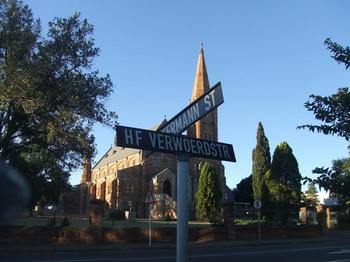
Heidelberg, South Africa. February 2007
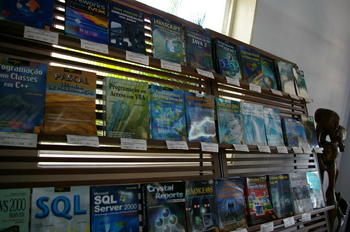
Maputo, Mozambique. February 2007
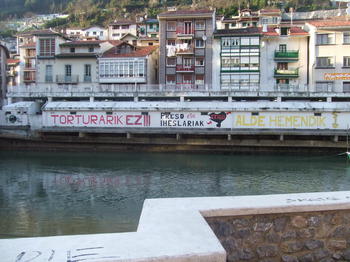
Ondarroa, Spain. March 2007
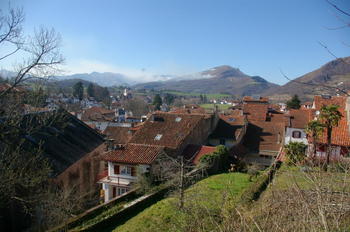
St Jean Pied de Port, France. March 2007
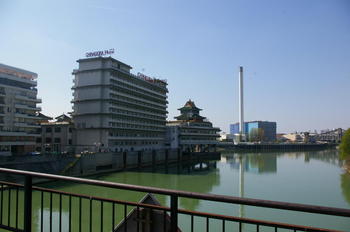
Alfortville, France. April 2007

Oslo, Norway. May 2007
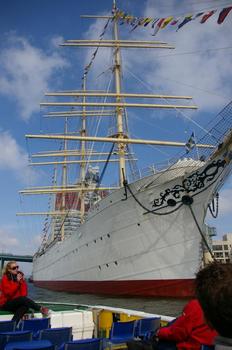
Gothenburg, Sweden. May 2007
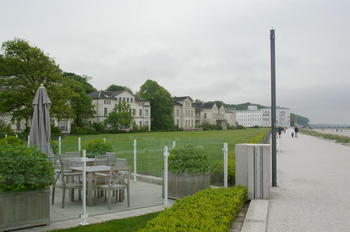
Heiligendamm, Germany. May 2007

Swinoujscie, Poland. May 2007.
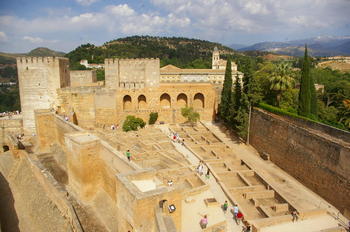
Granada, Spain. June 2007

Los Angeles, California. June 2007

Tijuana, Mexico. June 2007

Paris, France. July 2007.

Wroclaw, Poland. August 2007
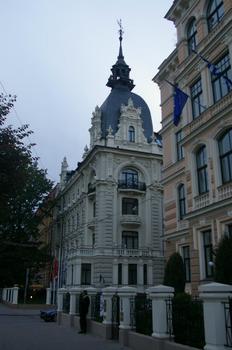
Riga, Latvia. September 2007
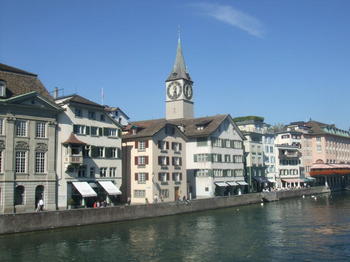
Zurich, Switzerland. September 2007
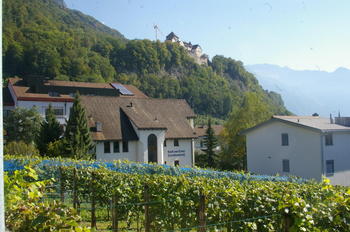
Vaduz, Liechtenstein. September 2007
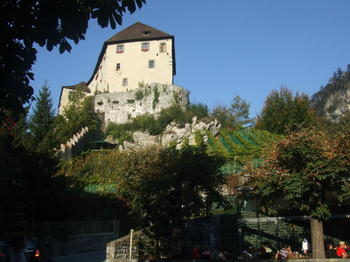
Feldkirch, Austria. September 2007
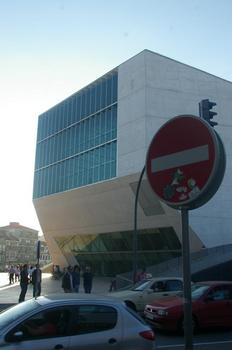
Porto, Portugal. October 2007
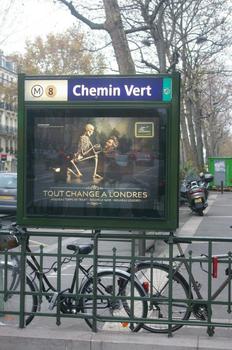
Paris, France. November 2007
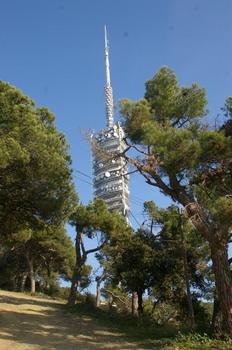
Barcelona, Spain. December 2007
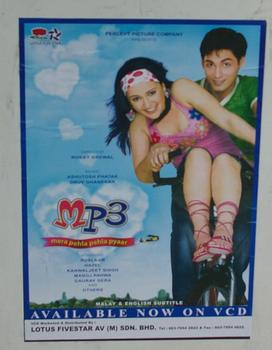
Penang, Malaysia. December 2007

Singapore. December 2007
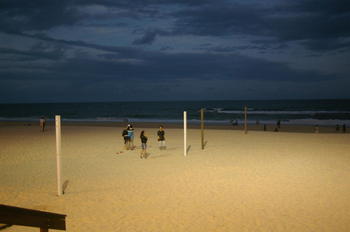
Gold Coast, Australia. December 2007
Bebe is now three, and has taken to the proper feline adult life of sitting in chairs, demanding to be fed at four in the morning, catching lizards, and occasionally waving her claws at people.
I am presently doing a littlle travel on (or perhaps off) the Malayan peninsula prior to Christmas in Australia. Right now I am in Penang, and as always there is much to write about, but I do not alas presently have time to write it. So, a few photographs. Also, I shall be back in Singapore from this evening, and I am free on Thursday evening. If we have any Singapore readers who feel like meeting up for a drink, or dinner, or perhaps even some air conditioned indoor prawning, please let me know, preferably by leaving a comment at the end of this post.
Do I find it cool that I can look at high resolution satellite images of my current location on a tiny battery operated hand-held device while sitting in a coffee shop in Penang? Hell yes.
Word got out today that Her Majesty’s Customs and Revenue (ie the British tax service) managed to lose a CD containing ‘customer records’ for recipients of child benefits that was being sent to the National Audit Office. These included sort code and bank account details, national insurance numbers, dates of birth, and names and address details of a mere twenty five million people.
These were apparently sent using the Civil Service’s hyper-secure ‘grid post’ system, which involves people putting unsealed and re-used envelopes in out trays in their offices. As the Register puts it.
“… sometimes you get the more security-aware users sticking a label across the seal and signing it, so there’s some evidence if it’s tampered with.”
When the CD sent this way did not arrive, they resent it, using the hyper-hyper-secure Registered Mail service provided by the Royal Mail (fortunately, this time it arrived).
However, Alistair Darling has now set up an investigation. That makes me feel so much better.
And Paul Smee, of the bank clearing system has said that we all enjoy protection under the Banking Code, so we will cannot suffer any financial loss. And anyway, the accounts in question have had “extra safeguards” put on them. All 25 million of them, presumably. That makes me feel so much better too.
And does anyone at all seriously believe that the proposed system of ID cards and national identity databases is not going to deliver us debacle after debacle of this kind? Why do ministers and bureaucrats live in this deluded world in which they believe they are competent?
|
Who Are We? The Samizdata people are a bunch of sinister and heavily armed globalist illuminati who seek to infect the entire world with the values of personal liberty and several property. Amongst our many crimes is a sense of humour and the intermittent use of British spelling.
We are also a varied group made up of social individualists, classical liberals, whigs, libertarians, extropians, futurists, ‘Porcupines’, Karl Popper fetishists, recovering neo-conservatives, crazed Ayn Rand worshipers, over-caffeinated Virginia Postrel devotees, witty Frédéric Bastiat wannabes, cypherpunks, minarchists, kritarchists and wild-eyed anarcho-capitalists from Britain, North America, Australia and Europe.
|

